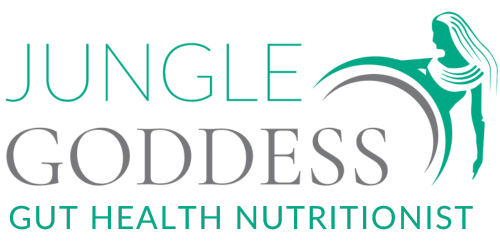Culinary Medicine for Gut Health
The culinary arts have long provided medicine for all aspects of wellbeing, including gut health. As far back as the 5th century BCE the widely considered “Father of Medicine”, ancient Greek physician Hippocrates said:
‘Let food be thy medicine, thy medicine shall be thy food.’
He also said:
‘All disease begins in the gut’
Food has long been used as a prevention for disease. Ayurveda medicine originated some 3000 years ago in India, and traditional chinese medicine (TCM) dates back to at least the 2nd century BCE. Both still remain preferred methods of healthcare, either exclusively or combined with modern medicine.
Since the arrival of modern day healthcare we have slowly distanced ourselves from a nutritional approach to healthcare. Many feel more comfortable with drugs than food as a tool to combat disease.
Did you know that dietary factors are considered the single leading cause of death(1)? That is a pretty scary fact. A factor that is wholly within our power to change.
Coronary artery disease (CAD), ischemic stroke, diabetes, and some specific cancers are now becoming the dominant sources of morbidity and mortality worldwide. At the same time there is a general conclusion that we could prevent most of these cases among high-income populations by changes in diet and lifestyle habits(2).
Is food a cure-all for disease? No, however diet can play a significant role in the management of conditions and can influence disease risk. There is no reason why diet and pharmaceuticals cannot work synergistically in the management and prevention of disease.
Fortunately there is a growing interest in the science of functional foods. People are making the connection between their diet, lifestyle and their symptoms but they lack the knowledge to effect change. Unfortunately, medical education in nutrition across the globe is decidedly lacking(1), and many doctors’ knowledge of nutrition is rudimentary(3). As a result people are self-educating or reaching out to health and wellness coaches to gain the skills and knowledge to tackle a broad range of health issues with positive dietary and lifestyle changes.
Our Relationship with Food:
Our relationship with food has become much more complicated than it was for our ancestors. Back then things were simple; eat and live.
In most western culture’s food has become a pleasure, a pastime, a social event through which we have established an emotional connection far beyond the purpose for survival. It is important that we honour our customs around eating because we can derive as much pleasure from the act of eating as we can from the experience of eating the food itself.
We use food for comfort, as a reward, a punishment, and our eating behaviour is often closely linked to our emotional state. People use food as a coping mechanism to deal with aspects of life such as stress, boredom or anxiety. While this may bring relief in the short term, inevitably this leads to regret and guilt especially when these habits result in weight gain and loss. Sometimes this behaviour can lead to eating disorders that are often associated with mental health issues.
What we consume is not limited to what we eat; it includes what we see, watch, think and feel. Likewise, what we eat does not just impact us in a physical way, but emotionally too.
Culinary medicine rather than dieting:
What words does ‘diet’ conjure up for you?
The problem with dieting is that most diets are structured around deprivation. In a culture where we have created a social and pleasure-based relationship with food, denying ourselves the experience sets us up for failure. Psychologically we put ourselves in a position where we are punishing ourselves by denying the enjoyment of eating.
We rely on willpower to keep true to our diet, to maintain our self-control over our natural desires and urges. The more that we deny ourselves our pleasures, the more we crave them.
In reality maybe 10% of diets are successful and the number of people experiencing obesity is testimony to the fact. About 13% of the world’s adult population has obesity, while 39% are overweight(4). In the UK alone, 25% of the population is obese and that number is 35% in the United States. In fact, there is evidence that weight loss diets actually lead to weight gain.
So instead, think about creating a healthy relationship with food that you can follow indefinitely. Consider incorporating culinary medicine into your lifestyle that can benefit gut health and overall wellness. Is that something you are ready for?

Culinary medicine and healthy eating?
To meet our nutritional needs, we need to eat a balanced diet of nutrients including carbohydrates, protein, fat, vitamins and minerals. The challenging is identifying the right balance of these dietary components for our individual needs, and to choose the best foods in each category to eat.
The following diagram from the Eatwell Guide divides the foods we eat and drink into 5 main food groups. It provides guidance on the proportion of each group we should eat, and the types of food that we should be eating from each category.

While this is a good ‘starting point’, we have to recognise that our individual nutritional needs are affected by a number of factors including our age, gender, activity level, environment, health status and more. We are all beautifully individual so the best diet for you specifically, needs to be specific to you.
We also need to be mindful that our nutritional needs change depending on our own individual circumstances. Over time you will age, your activity levels may change, you get might get sick, put on or lose weight. We all go through many changes in our lifetime that impact our nutritional needs.
Think about it:
- An athlete needs to derive much more energy from their food than an elderly person.
- A person suffering from diabetes needs to pay more attention to the food that impacts their blood sugar levels than someone sick with a cold.
- If you break your leg and do not change your eating habits, you are at risk of putting on weight due to your decreased activity levels.
So healthy eating is not just about what you eat but also how you eat in relation to your own personal circumstances.
How can culinary medicine support gut health?
There are a number of health issues such as autoimmune and inflammatory conditions than can cause digestive issues. Conditions such as inflammatory bowel disease, irritable bowel syndrome, GERD, celiac disease, peptic ulcers, SIBO, leaky gut and more. Common symptoms are abdominal pain, bloating, constipation, diarrhoea, intestinal bleeding, heartburn, nausea, vomiting and cramping.
Food can play a major role in the experience of these conditions. Celiac disease for example is an immune reaction to eating gluten. Food intolerances and food sensitivities are the result of the body reacting adversely to the food that we eat. In the case of food allergies, that reaction can be life threatening.
To determine what impact diet has on these conditions it is often a process of analysis and elimination to determine a diet that works in harmony with your condition, and often a diet that is forever changing depending on the extent of the health condition and your other personal circumstances.
In some cases certain foods may need to be eliminated from our diet permanently. In others, food exclusions may only need to be temporary until the condition is under control. While it may be possible to fully reintroduce some foods, it may be advisable to limit consumption of trigger foods to avoid further reactions in the future.
In culinary wellness we combine the scientific knowledge of how food influences disease with the culinary arts, creating culinary medicine. Culinary medicine helps you create a way of eating that:
- is supportive of gut health, digestive issues and overall wellbeing
- you can get passionate about and that you will enjoy
- can transform your relationship with food so that you may find joy in eating again
Revealing more about Culinary Wellness:
Slowly we are pulling back the covers on the subject of culinary wellness.
Stay tuned as we will soon be delving into the world of the gut microbiome, discovering more about the gut:brain connection , the concept of gut health anxiety and determining how powerful mindset can be when making the shift to Culinary Wellness.
Stay In Touch!
Newsletter Sign up!
Follow Me On Social Media!
References:
- https://www.thelancet.com/journals/lanplh/article/PIIS2542-5196(19)30173-1/fulltext
- https://www.ncbi.nlm.nih.gov/books/NBK11795/
- https://www.ncbi.nlm.nih.gov/pmc/articles/PMC318470/
- https://www.worldobesity.org/about/about-obesity/prevalence-of-obesity#:~:text=According%20to%20the%20World%20Health,overweight%2C%20with%2013%25%20obese

